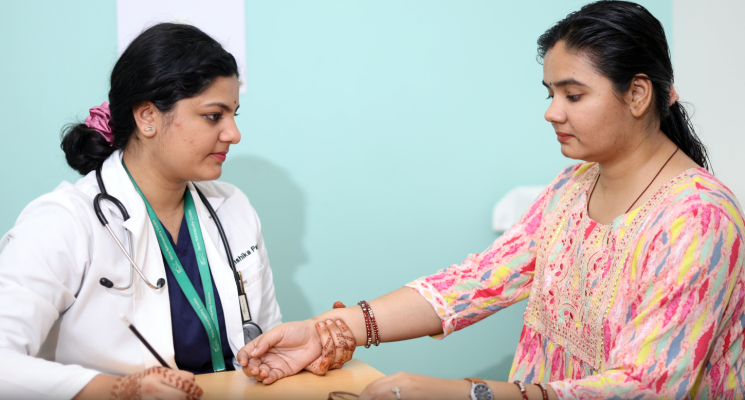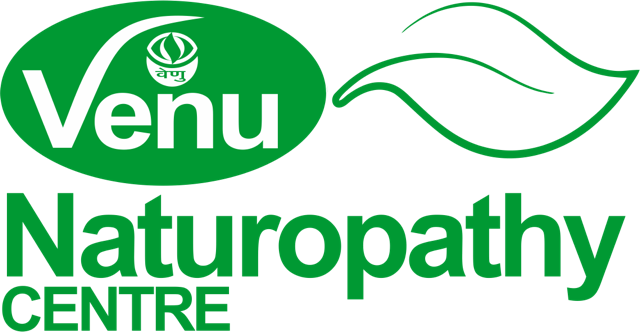Why Naturopathy

Naturopathy – often referred to as naturopathic medicine – represents a distinctive system of complementary medicine that has gained considerable traction in recent years the world over. Its fundamental approach centers on the holistic prevention of disease through natural, therapeutic interventions. A core tenet of this system is the belief in the body’s inherent capacity to heal itself, with treatments designed to support the intricate interplay of the body, mind, and emotions throughout the healing journey.
The primary objectives of naturopathic practice are to prevent and address illness by identifying and resolving its underlying causes, rather than merely alleviating or suppressing symptoms. This comprehensive methodology integrates various practices, including the promotion of physical activity, advocacy for a balanced diet, and the implementation of stress management techniques.
Practitioners of naturopathy adopt an individualized approach, tailoring treatments to each patient and focusing on the entire person, rather than concentrating solely on the affected area or symptom. The overarching aim is to diminish negative health manifestations such as pain, stress, anxiety, inflammation, and fatigue, while simultaneously enhancing positive attributes like mental clarity, sleep quality, energy levels, motivation, and a sense of calm.
This consistent emphasis on identifying “root causes” and adopting a “holistic” treatment paradigm signals a fundamental philosophical divergence from conventional medicine, which is often perceived as primarily symptom-focused. This foundational difference profoundly influences all subsequent aspects of naturopathic practice, from diagnostic methodologies to therapeutic modalities.
While conventional medicine often follows a reductionist model, isolating and treating specific symptoms or diseases, naturopathy adheres to a systems-based, holistic model. This philosophical underpinning dictates the diagnostic approaches, which often involve understanding patient histories rather than solely relying on specific lab markers, and guides therapeutic choices towards natural therapies over pharmaceutical interventions.
Historical Origins and Evolution
The term “naturopathy” itself is etymologically rooted in the Greek word “pathos” (suffering) and the Latin “natura” (birth), collectively conveying the concept of “natural healing”. Its historical lineage can be traced back to the 18th and 19th-century “natural healing” movements that flourished in Europe. These movements encompassed “nature cures,” which involved the therapeutic use of light, food, air, water, and herbs, and hydrotherapy, the application of water for treating illness, which was particularly popular in Germany.
Hippocrates, widely recognized as the ancient Greek “Father of Medicine,” is frequently cited by naturopaths as an early proponent of principles akin to naturopathy, especially his concept of “the healing power of nature,” long before the term “naturopathy” was coined.
Foundational Principles
Naturopathic medicine is built upon six foundational principles that serve as guiding tenets for diagnosis and treatment, thereby distinguishing naturopathic physicians from other healthcare professionals. This principle posits that every individual possesses an inherent, intelligent, self-healing capacity. Naturopathic physicians aim to identify and remove any obstacles that impede this natural healing and recovery process, while simultaneously facilitating and augmenting it. This  concept refers to an intelligent life force that strives for balance and health, present within our bodies, our food, our plant-based medicines, and the broader natural world. Engaging with nature is associated with numerous health benefits, including reduced stress, lower blood pressure, improved mental outlook, and increased levels of mood-regulating neurotransmitters like dopamine and serotonin.
concept refers to an intelligent life force that strives for balance and health, present within our bodies, our food, our plant-based medicines, and the broader natural world. Engaging with nature is associated with numerous health benefits, including reduced stress, lower blood pressure, improved mental outlook, and increased levels of mood-regulating neurotransmitters like dopamine and serotonin.
 concept refers to an intelligent life force that strives for balance and health, present within our bodies, our food, our plant-based medicines, and the broader natural world. Engaging with nature is associated with numerous health benefits, including reduced stress, lower blood pressure, improved mental outlook, and increased levels of mood-regulating neurotransmitters like dopamine and serotonin.
concept refers to an intelligent life force that strives for balance and health, present within our bodies, our food, our plant-based medicines, and the broader natural world. Engaging with nature is associated with numerous health benefits, including reduced stress, lower blood pressure, improved mental outlook, and increased levels of mood-regulating neurotransmitters like dopamine and serotonin.By focusing on removing “obstacles to healing” , naturopaths operate on the understanding that disease often represents a disruption of natural processes. Their role, therefore, is to restore optimal conditions for the body to heal itself, rather than imposing external cures. This understanding fundamentally underpins the non-invasive nature of many naturopathic treatments, as it guides practitioners to support the body’s intrinsic mechanisms rather than overriding them. This philosophical stance directly influences the choice of modalities, favoring natural and gentle approaches, and shapes the patient-doctor relationship, emphasizing the doctor as a teacher and promoting patient self-responsibility.
The Six Foundational Principles of Naturopathic Medicine
- Do No Harm | Prioritizing safe, gentle treatments that minimize adverse effects and avoid symptom suppression without addressing cause.
- The Healing Power of Nature | Recognizing and facilitating the body’s inherent, intelligent capacity for self-healing by removing obstacles to health.
- Identify and Treat the Cause | Seeking and addressing the underlying root causes of illness rather than merely managing symptoms.
- Doctor as Teacher | Empowering patients through education to take personal responsibility for their health and well-being.
- Treat the Whole Person | Viewing the individual as an interconnected system of physical, mental, emotional, spiritual, social, and environmental factors.
- Prevention | Proactively assessing risk factors and implementing interventions to prevent illness and promote long-term health.
Prevention
Preventative care is a fundamental cornerstone of naturopathic medicine, involving a proactive assessment of an individual’s risk factors, hereditary predispositions, and susceptibility to disease. Naturopaths collaborate with patients to implement appropriate interventions aimed at preventing illness and promoting long-term health and well-being. This principle is applied through practical recommendations that include emphasizing a balanced diet, encouraging regular physical activity, ensuring adequate sleep, and teaching effective stress management techniques.
Naturopathic Modalities and Therapeutic Approaches
Naturopathy encompasses a diverse array of natural therapies, which are typically selected and applied based on the unique individual needs of each patient and are consistently guided by the six foundational principles.
Clinical Nutrition and Dietary Interventions
Food is considered paramount in naturopathic practice, often referred to as the “best medicine,” forming a cornerstone of the approach. Naturopathic doctors (NDs) utilize diet, natural hygiene practices, fasting protocols, and nutritional supplementation to effectively treat and prevent various health conditions, restore physiological  balance, and support the body’s natural detoxification processes.
balance, and support the body’s natural detoxification processes.
 balance, and support the body’s natural detoxification processes.
balance, and support the body’s natural detoxification processes.Dietary recommendations consistently emphasize a balanced diet rich in whole foods, essential vitamins, and minerals. This often includes advising patients to avoid certain foods, as well as common stimulants like coffee, tea, tobacco, and alcohol. Anti-inflammatory dietary patterns, such as the Mediterranean diet, are frequently recommended due to their documented health benefits. The strong emphasis on nutrition and diet, including “detoxification” and avoiding certain substances, suggests a belief in the significant impact of external inputs (food, toxins) on internal physiological balance. This aligns with the “Treat the Cause” principle, positing that dietary imbalances or toxic exposures are often root causes of illness. This approach shifts the focus from managing symptoms to optimizing the body’s internal environment through nutritional choices, leading to a proactive and preventative strategy for health.
Herbal and Botanical Medicine
Botanical medicine utilizes plant substances as potent therapeutic agents. Unlike isolated chemically derived drugs that may target a single issue, botanical medicines can often address multiple problems simultaneously. When properly administered, most botanical medicines are considered effective with minimal side effects. Both Western and Oriental herbal formulas are employed, drawing upon time-honored traditional healing applications for a variety of symptoms and conditions.
Hydrotherapy
Hydrotherapy harnesses the healing power of water in its various forms to build and maintain health.  These “water treatments” have been utilized for centuries to promote healing. Specific therapeutic techniques include hot and cold compresses, foot soaks, and steam baths. The application of heated water expands blood vessels, while cold water contracts them, leading to changes in temperature that accelerate blood flow and improve circulation. This enhanced circulation helps send disease-fighting white blood cells through the bloodstream, boosting immunity, reducing congestion, and increasing toxin removal. Hydrotherapy is also frequently employed for stress reduction and relaxation.
These “water treatments” have been utilized for centuries to promote healing. Specific therapeutic techniques include hot and cold compresses, foot soaks, and steam baths. The application of heated water expands blood vessels, while cold water contracts them, leading to changes in temperature that accelerate blood flow and improve circulation. This enhanced circulation helps send disease-fighting white blood cells through the bloodstream, boosting immunity, reducing congestion, and increasing toxin removal. Hydrotherapy is also frequently employed for stress reduction and relaxation.
Medicine aims to promote a return to health across physical, mental, and emotional dimensions.
 These “water treatments” have been utilized for centuries to promote healing. Specific therapeutic techniques include hot and cold compresses, foot soaks, and steam baths. The application of heated water expands blood vessels, while cold water contracts them, leading to changes in temperature that accelerate blood flow and improve circulation. This enhanced circulation helps send disease-fighting white blood cells through the bloodstream, boosting immunity, reducing congestion, and increasing toxin removal. Hydrotherapy is also frequently employed for stress reduction and relaxation.
These “water treatments” have been utilized for centuries to promote healing. Specific therapeutic techniques include hot and cold compresses, foot soaks, and steam baths. The application of heated water expands blood vessels, while cold water contracts them, leading to changes in temperature that accelerate blood flow and improve circulation. This enhanced circulation helps send disease-fighting white blood cells through the bloodstream, boosting immunity, reducing congestion, and increasing toxin removal. Hydrotherapy is also frequently employed for stress reduction and relaxation.Medicine aims to promote a return to health across physical, mental, and emotional dimensions.
Mind-Body Medicine and Psychological Counseling
This modality recognizes the profound connection between mental attitudes, emotional states, and physical illness. Therapies such as counseling, nutritional balancing, psychotherapy, and stress management techniques (e.g., meditation, relaxation, deep breathing, yoga) are utilized to help patients achieve psychological healing and improve overall mental well-being. This approach acknowledges that stress and emotional well-being can significantly impact physical health, and addressing these factors is crucial for holistic healing.
Physical Medicine and Manipulative Therapies
Naturopathic medicine incorporates therapeutic manipulation of soft tissue, muscles, bones, and the spine. Practitioners may utilize techniques such as massage therapy, acupressure, reflexology, and mechanotherapy.  They also employ modalities like ultrasound, diathermy, exercise, and the application of heat and cold, along with other gentle electrical therapies, to treat musculoskeletal conditions and pain.
They also employ modalities like ultrasound, diathermy, exercise, and the application of heat and cold, along with other gentle electrical therapies, to treat musculoskeletal conditions and pain.
 They also employ modalities like ultrasound, diathermy, exercise, and the application of heat and cold, along with other gentle electrical therapies, to treat musculoskeletal conditions and pain.
They also employ modalities like ultrasound, diathermy, exercise, and the application of heat and cold, along with other gentle electrical therapies, to treat musculoskeletal conditions and pain.Scientific Evidence and Research Findings
Research in whole-system, multi-modality naturopathic medicine indicates its effectiveness in treating various conditions, including cardiovascular disease, musculoskeletal pain, type 2 diabetes, polycystic ovary syndrome, depression, and anxiety. Lower methodological quality research also suggests effectiveness for chronic pain, hepatitis C, menopausal symptoms, bipolar disorder, and increasing cancer survival time. These positive outcomes have been observed consistently across different world regions for similar conditions, reflecting a global consistency in applying core naturopathic concepts and modalities.
Specifically, studies have shown:
- Cardiovascular Disease: Clinically significant benefits for hypertension, metabolic syndrome parameters, and improved cardiac outcomes post-surgery.
- Type 2 Diabetes Mellitus: Clinically relevant reductions in HbA1c levels.
- Musculoskeletal Pain: Decreased pain scores comparably or better than standard care or other active treatments for conditions like chronic low back pain and rotator cuff tendinitis.
- Mood Disorders: Significant reductions in anxiety and depression levels.
- Complex Chronic Disease: Overall positive effect on quality of life and symptomatic improvement.
- Asthma: Improved clinical asthma profiles and lung function parameters with inpatient treatment.
- Other Conditions: Improved survival rates in liver cancer when Cordyceps sinensis was part of treatment, significant improvement for insomnia and decreased energy in menopause, reductions in serum alanine aminotransferase (ALT) levels in hepatitis C, and highly significant improvement in PCOS symptoms and pregnancy rates with combined lifestyle and herbal medicine.
Conditions Addressed by Naturopathy
Common conditions and wellness goals that naturopathic doctors may help with include:
Chronic Fatigue and Fibromyalgia: Utilizing lifestyle changes (stress management, exercise, diet, sleep) and natural remedies (herbal supplements, acupuncture, massage, nutrient supplementation) to address root causes and manage symptoms.
- Digestive Issues and Autoimmune Diseases: Identifying triggers (e.g., food allergens, environmental irritants), recommending anti-inflammatory diets, and using natural approaches like probiotics, digestive enzymes, and herbal supplements to improve gut health and reduce inflammation.
- Hormonal Imbalances and Menopause: Employing bioidentical hormone replacement therapy, herbal remedies (e.g., black cohosh, evening primrose oil), and lifestyle changes (stress management, healthy diet) to balance hormones and alleviate symptoms.
- Chronic Illnesses (e.g., Diabetes, Heart Disease, Cancer): Adopting a comprehensive approach with individualized treatment plans that incorporate natural therapies and lifestyle changes to address underlying causes and promote self-healing. For diabetes, this includes diet regulation, preventing overeating, treating deficiencies, avoiding refined sugars, and promoting exercise. For cardiovascular health, dietary changes (whole grains, fruits, vegetables, healthy fats, reduced salt) and natural remedies are advised.
- Stress Management and Mental Well-being: Recognizing the mind-body connection, NDs use natural treatments (mindfulness, counseling, herbal remedies, acupuncture) and lifestyle changes (exercise, balanced diet, adequate sleep) to ease anxiety and depression, promote emotional balance, and strengthen mindset.
- Skin Conditions and Allergies: Addressing symptoms and underlying causes by identifying and eliminating triggers (food allergens, environmental irritants) and supporting internal health with natural topical treatments, herbal supplements, and diet changes rich in antioxidants and omega-3 fatty acids.
- Pain Management and Arthritis: Utilizing dietary changes to reduce inflammation, promoting exercise for mobility, incorporating mind-body practices, and recommending therapies like acupuncture and herbal treatments for pain relief and joint health.
- Fertility and Prenatal Care: Supporting reproductive health and pregnancy readiness through preconception counseling, nutritional support during pregnancy, and natural methods.
- General Wellness and Prevention: Individuals may seek naturopathic care not only for existing conditions but also to boost overall health, prevent future illnesses, and optimize well-being.
Empowering individuals
Naturopathy stands as a distinct system of complementary medicine rooted in historical “nature cure” movements and guided by a set of six foundational principles: the healing power of nature, identifying and treating the cause, first do no harm, doctor as teacher, treating the whole person, and prevention. These principles collectively define a healthcare philosophy that emphasizes the body’s intrinsic self-healing capabilities, a holistic understanding of health and disease, and a proactive, patient-centered approach to wellness.



